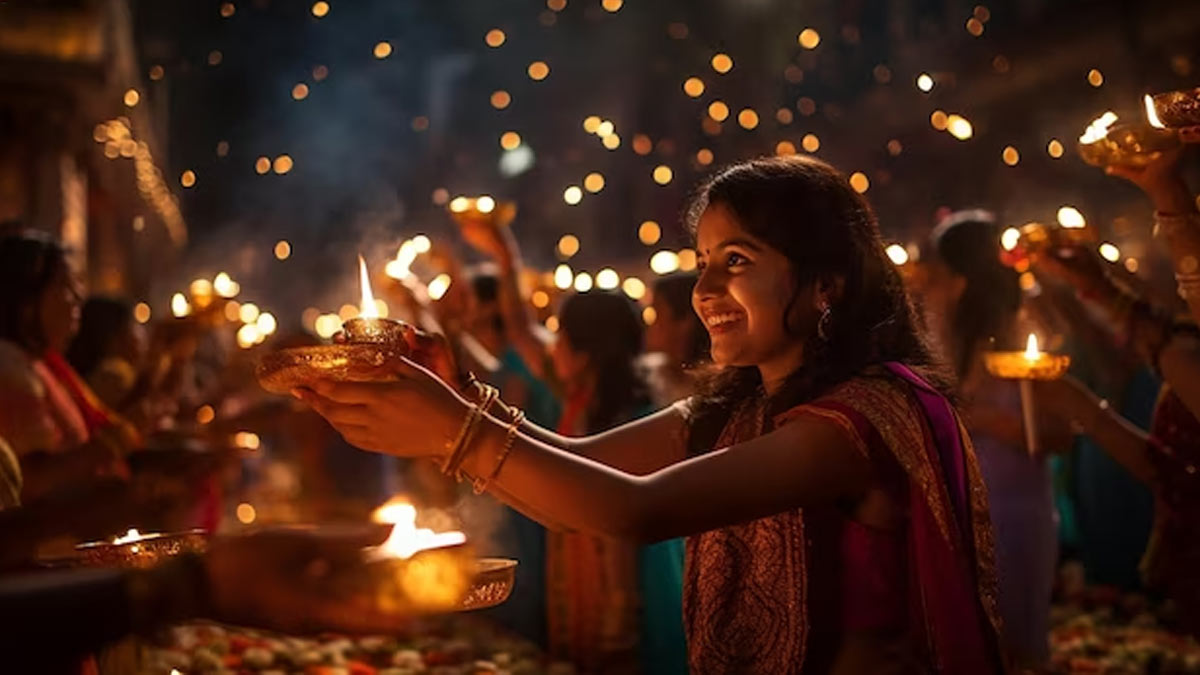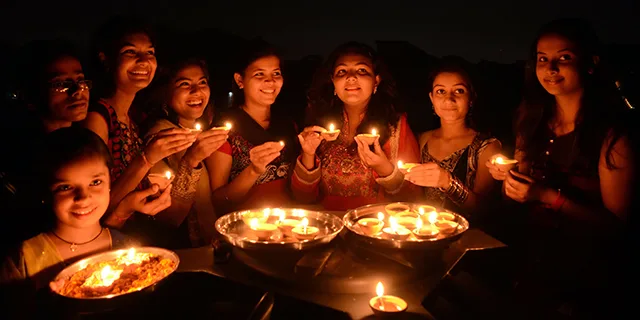Introduction
Diwali, the festival of lights, is one of the most significant celebrations in India and other parts of the world. But have you ever wondered how many religions celebrate Diwali? While Diwali is traditionally associated with Hinduism, it is also celebrated by other religions such as Jainism, Sikhism, and Buddhism. Each faith observes this festival with unique traditions and significance, making Diwali a genuinely diverse and inclusive event.

Diwali in Hinduism: The Origin of the Festival
Diwali holds a special place in Hinduism, as it symbolizes the triumph of light over darkness and good over evil. The most common story associated with Diwali in Hindu mythology is the return of Lord Rama to Ayodhya after defeating the demon king Ravana. To celebrate his victory, the people of Ayodhya lit oil lamps, which have now become a central part of Diwali celebrations.
Jainism: The Celebration of Spiritual Awakening
While Diwali is widely recognized as a Hindu festival, Jainism also celebrates it with great enthusiasm. For Jains, Diwali marks the day Lord Mahavira, the 24th Tirthankara, attained Nirvana or spiritual liberation. It is a day for fasting, prayer, and reflecting on the teachings of Mahavira, which focus on non-violence, truth, and asceticism.

Sikhism: A Time of Freedom and Reflection
In Sikhism, Diwali is observed as Bandi Chhor Divas, a day of liberation. It commemorates the release of Guru Hargobind Ji and 52 other prisoners from the Gwalior Fort by Emperor Jahangir. Sikhs light lamps and visit gurdwaras to offer prayers of gratitude and celebrate this act of freedom. Diwali is also a time for reflection on Sikh values such as courage and justice.
Buddhism: A Celebration of Emperor Ashoka’s Conversion
Though less widespread, some Buddhist communities, particularly in Nepal, celebrate Diwali as the day Emperor Ashoka converted to Buddhism and embraced the path of peace and non-violence. Buddhists in these regions light lamps to signify enlightenment and spiritual awakening, aligning Diwali with their religious values.
The Diversity of Diwali Celebrations Across Faiths
Diwali’s significance goes beyond religious boundaries. The shared themes of light, knowledge, and good fortune resonate across Hinduism, Jainism, Sikhism, and Buddhism. It makes Diwali a time of unity, where multiple faiths come together to celebrate the same values, albeit with their own interpretations.
Conclusion
So, how many religions celebrate Diwali? At least four major religions—Hinduism, Jainism, Sikhism, and Buddhism—observe Diwali, each with its distinct traditions and meanings. Despite the differences, the festival is a time of joy, reflection, and unity for millions of people worldwide. The diversity of Diwali celebrations makes it a festival that transcends boundaries, bringing people of various faiths together in the spirit of light and goodness.

Hello friends, my name is Shivam Kumar, and I am a writer, skilled in creating engaging, SEO-optimized content on online income and content creation since last two years. And I will be sharing this information form my blog.